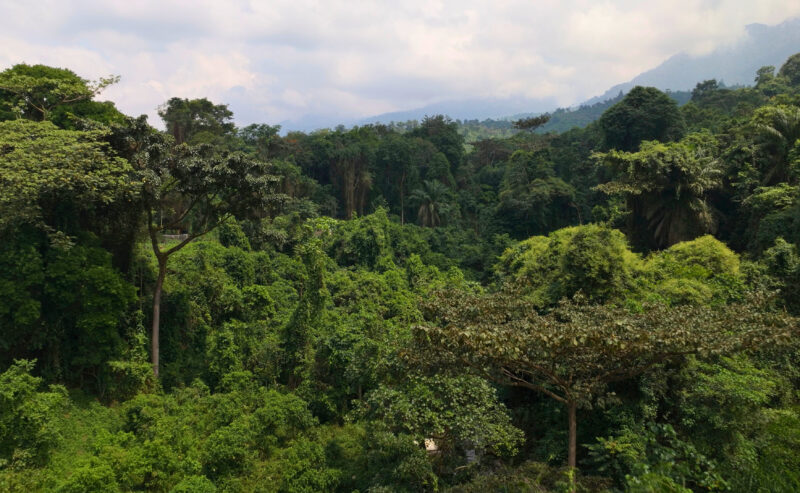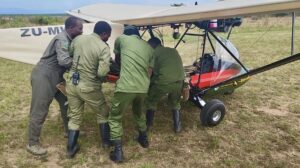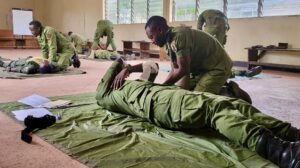
Contribute to the Century Ahead >
Virunga National Park has regrettably experienced some of the gravest losses among its Rangers. From February 26 to March 7, 2024, at Rwindi, in the Park’s northern sector, a crucial new training program was introduced aimed primarily to improve the treatment of injuries sustained by its staff, particularly the dedicated Rangers tasked with safeguarding the Park’s rich biodiversity.
Fifteen participants across the Park’s four sectors engaged in this program aimed at bolstering on-ground medical support. Over the course of two weeks, these participants immersed themselves in three key missions. Firstly, to strengthen the skills of their fellow eco-guards across various units, they received specialized training to serve as combat first aid trainers. The second critical aspect addressed during the training was the provision of care. Participants gained proficiency in assessing and handling evacuation situations and executing intricate technical procedures such as airway management, wound care, and fracture immobilization. Lastly, they were tasked with bridging the gap between their units and the welfare department, facilitating more effective communication channels concerning medical needs.

This training marks the first step in implementing a comprehensive medical support plan within the Park, which not only addresses civilian medical needs for guards and their families but also recognizes the unique challenges faced by park guards due to the inherent dangers of their roles. Collaborative efforts with the Park’s Airwing department were pivotal in acquainting the guards with diverse aerial medical evacuation methods and refining procedures shared between rescuers and pilots to expedite evacuations.
The success of this training endeavor is evident as all fifteen candidates successfully completed the program. The exchanges between the first aid candidate guards and the trainers proved to be enriching learning experiences for both parties involved. To further bolster medical preparedness, a similar training session is slated for October with the objective of having at least one certified first aider per platoon, encompassing around thirty guards.
It’s noteworthy that this training initiative fostered collaboration among various departments within Virunga National Park, notably welfare, security, and airwing. Moreover, it benefitted from the collaboration of VIPER, a research unit from the Royal Military School of Belgium, specializing in imparting medical skills to tactical personnel and providing medical support in challenging environments.

Learn More
Shop Now